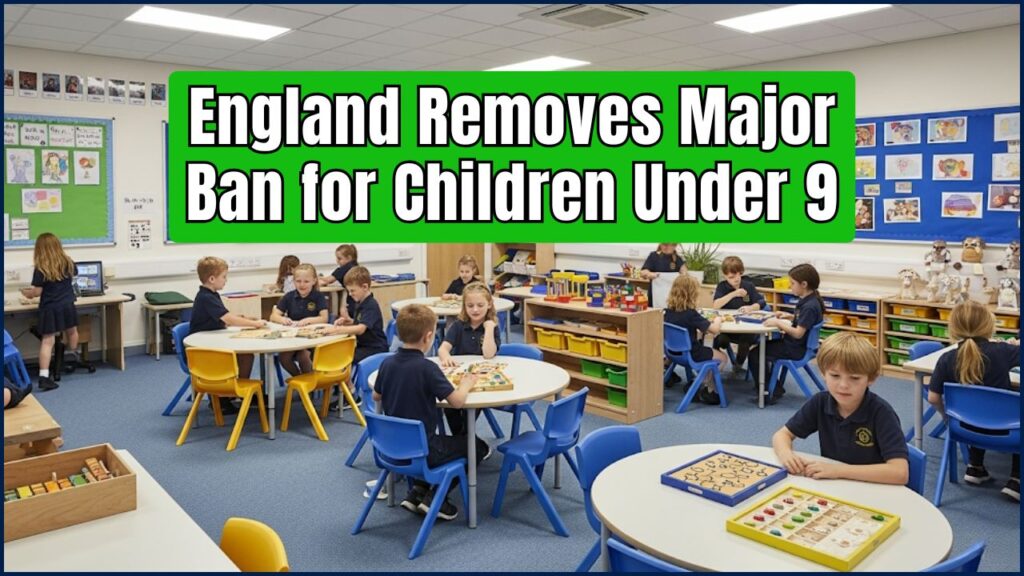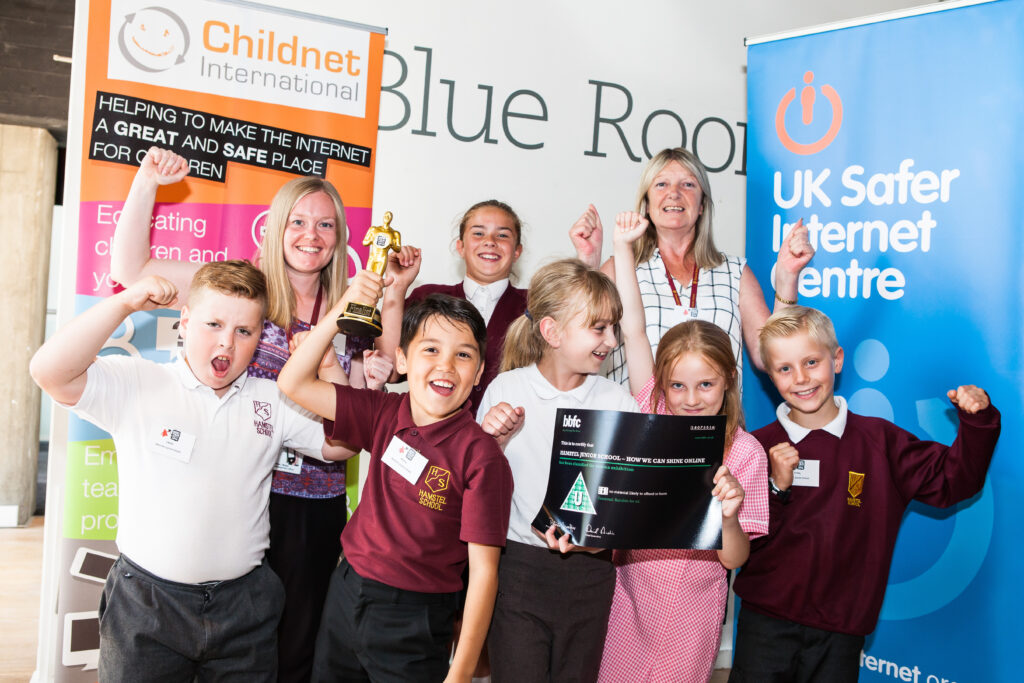In a groundbreaking move, the UK government has lifted a significant ban that restricted the teaching of sensitive topics to children under the age of 9. For years, subjects like online safety, sexual assault, and pornography were considered too inappropriate for younger students. However, with the latest policy update, England’s education system is taking a fresh, more flexible approach to teaching children about the complex world around them.

This policy change affects millions of families and children, and it’s making waves in educational communities across the UK. Whether you’re a concerned parent, an educator, or someone interested in the development of children in the digital age, this update is essential reading. Let’s break it down, explore what it means for you, and offer practical advice on how to navigate these changes.
Massive Update for Families
| Key Point | Details |
|---|---|
| Policy Update | England’s government has lifted the ban on teaching children under the age of 9 about sensitive topics like online safety, sexual assault, and pornography. |
| Impact on Schools | Schools now have more flexibility in introducing sensitive topics based on age-appropriate context, with parental consultation. |
| Parental Involvement | Parents have the right to review curriculum materials and voice their concerns to ensure the topics are suitable for their children’s age and development. |
| Online Safety Focus | A key part of the curriculum will be teaching children how to navigate the digital world safely, including awareness of harmful content, AI threats, and online abuse. |
| Reactions to the Update | Some educators and parents support the change, while others express concern about the premature exposure of young children to such topics. |
| Practical Advice for Parents | Parents are advised to actively engage with their children’s schools, stay informed, and provide feedback on what their children are learning to ensure they align with family values. |
| Additional Resources | Visit the official UK Government website for more on the updated Relationships, Sex, and Health Education (RSHE) curriculum. |
The UK’s decision to lift the ban on teaching sensitive topics like pornography and sexual assault to children under the age of 9 represents a significant shift in how young learners are educated about the modern world. While this policy change offers greater flexibility and involvement for parents, it also calls for responsible education that aligns with children’s developmental needs.
For parents and educators alike, staying informed, open-minded, and engaged is key. By embracing these changes, we can help children navigate the complexities of the digital age safely and confidently.
What Exactly Has Changed?
For years, the policy in England restricted teaching about sensitive subjects such as pornography, sexual assault, and other complex topics to children under the age of 9. This was based on the belief that young children were too impressionable to handle such information.
However, with the new updates, schools have been given more flexibility. Teachers now have the ability to introduce these lessons based on what is appropriate for their students’ age and maturity level. This shift aims to find a balance between protection and education, acknowledging that children need to be equipped with the tools and knowledge to navigate a rapidly changing digital world.
The Global Context: How Other Countries Approach Sensitive Topics
Countries like Finland and Sweden have long embraced progressive approaches to teaching sensitive topics to children from a young age. In Finland, for example, children are taught about sexual health and gender equality as early as elementary school. This early exposure is seen as part of a broader effort to promote mental health, inclusivity, and respect from a young age.
Similarly, in Sweden, sex education is integrated into the school curriculum from a very early age, and students learn about consent, respect, and personal boundaries before they reach adolescence. Research suggests that early education on sensitive topics like these can help children form better relationships, make informed decisions, and reduce risky behaviors as they grow older.
How Will This Impact Schools?
With this new flexibility, schools in England will have the ability to tailor their lessons to suit the age, maturity, and developmental stage of their students. Teachers will have more control over when and how sensitive topics like pornography or sexual assault are introduced. The idea is to introduce these topics gradually, as children get older and are better able to understand them.
While the curriculum provides guidelines on what topics should be taught and when, the timing and depth of instruction will vary from school to school. Schools will need to ensure that they teach these topics with sensitivity and in a way that is appropriate for the child’s age and emotional readiness.
Parental Involvement Is Key
One of the most important aspects of this update is the emphasis on parental involvement. The government recognizes that parents play a critical role in guiding their children through sensitive topics. Therefore, schools are encouraged to consult with parents and give them the opportunity to review the materials before they are taught.
This allows parents to align what their children are learning with the values and expectations they have for their family. If you’re a parent, this means you should be actively involved in understanding what your child is being taught and voicing any concerns you might have.
What Does This Mean for Parents?
The lifting of this ban means that parents now have more involvement in the education process, but it also comes with the responsibility of staying informed. As a parent, you’ll need to:
- Review the Curriculum: Ask your school to provide a breakdown of the Relationships, Sex, and Health Education (RSHE) curriculum. This allows you to understand what your child will be taught and at what age.
- Stay Engaged: Keep the conversation going with your child. Even if topics like online safety and sexual consent aren’t being taught in school yet, it’s still important to discuss them at home.
- Share Your Feedback: If you feel uncomfortable with a particular topic being introduced at a certain age, don’t hesitate to speak up. Schools want to make sure that the lessons are relevant and appropriate for the children they teach.
- Use Resources: There are many online resources and apps that can help you guide your child’s learning about these sensitive topics. Websites like Childnet International provide practical advice on how to talk to your kids about online safety.

Tips for Teachers: Approaching Sensitive Topics
For educators, teaching these topics can be tricky, especially with younger students. Here are a few tips to help make these discussions more effective:
- Use Age-Appropriate Language: Always be mindful of your audience. Use simple, clear, and age-appropriate language to explain complex concepts.
- Create a Safe Space: Make sure that the classroom environment is one where students feel comfortable asking questions and engaging in discussions without fear of judgment.
- Encourage Parental Communication: Keep parents informed about what will be taught in advance. This transparency helps build trust and understanding between parents and teachers.
FAQs
What if I don’t want my child to learn about these topics at school?
You can discuss your concerns with the school and, if needed, request alternative lessons. Schools are required to offer flexibility for families with different values.
What age will these lessons start?
The new guidelines give schools the flexibility to introduce sensitive topics in later years of primary school, typically starting in Years 5 or 6 (ages 9-10).
How can I make sure my child is safe online?
Websites like Childnet International and NSPCC offer comprehensive guides and tips on keeping your child safe from online threats.
What if my child is exposed to inappropriate content online?
There are many tools, such as parental controls, that can help block harmful content. Additionally, talking openly with your child about online safety can reduce their exposure to inappropriate material.












